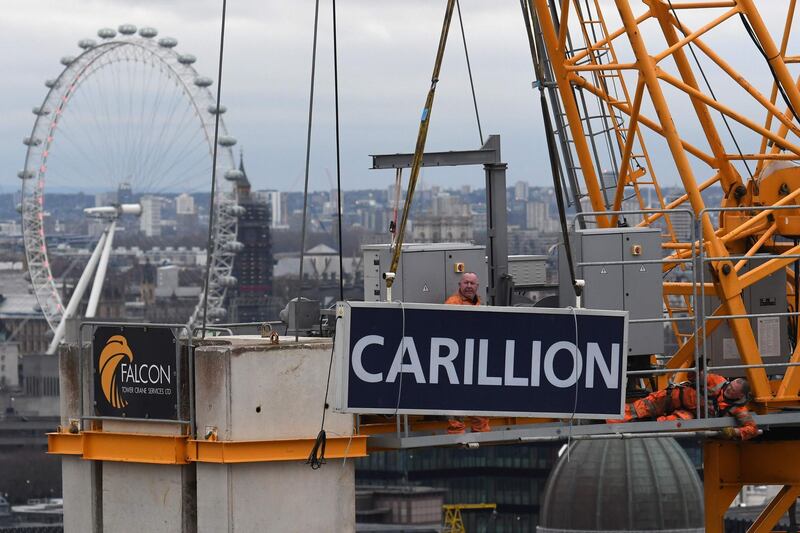The board of construction giant Carillion oversaw a “rotten corporate culture” that led to the company’s costly collapse this year with debts of more than £2 billion, a damning report by British lawmakers has found.
Carillion’s directors were busy “stuffing their mouths with gold” rather than ensuring the smooth running of a business, according to two parliamentary committees who raised questions about the relationship between major British firms and a “cosy club” of auditors.
The company – which specialised in government contracts from building hospitals to managing schools – collapsed in January with huge debts. It employed 43,000 people globally after expanding into Canadian, Caribbean and Middle East markets.
________________
Read more:
British MPs say accountancy firms face questions over Carillion collapse
Qatari developer slams 'misleading' Carillion claims
________________
Its directors blamed a delayed £200 million payment from Qatar over a hotel, office and residential development in Doha for its demise along with other “challenging contracts” in Oman. The former chief executive Richard Howson told MPs that “working in the Middle East is very different to working anywhere else in the world”.
But the MPs said that Carillion’s forays in overseas markets were “largely disastrous” and driven by “optimism rather than any strategic expertise”. They was scathing about the company’s model, which it described as an “unsustainable dash for cash”.
The lawmakers called for government reforms to address failures that allowed Carillion to become a “giant and unsustainable corporate time bomb.”
“The company’s delusional directors drove Carillion off a cliff and then tried to blame everyone but themselves,” said Ms Reeves. “Their colossal failure as managers meant they effectively pressed the self-destruct button on the company.”
The UK lawmakers called for the potential break-up of the so-called Big Four accountancy firms who failed to supply the independent scrutiny of a company that was heading for the rocks because of its dependency on debt and culture of acquisition.
Lawmakers said that the Big Four - PwC, KPMG, Deloitte and EY - had earned £71m since 2008 on work related to the firm.
“The sorry saga of Carillion is further evidence that the Big Four accountancy firms are prioritising their own profits ahead of good governance at the companies they are supposed to be putting under the microscope,” she said.
Ms Reeves told the BBC that the four providing auditing services for virtually every listed company. “We need reform,” she said.







